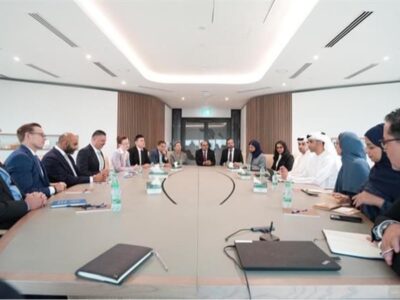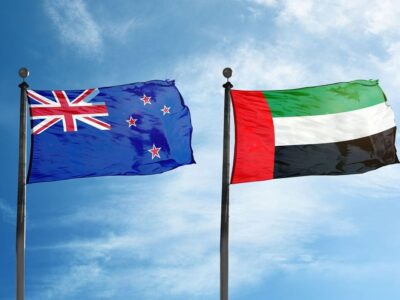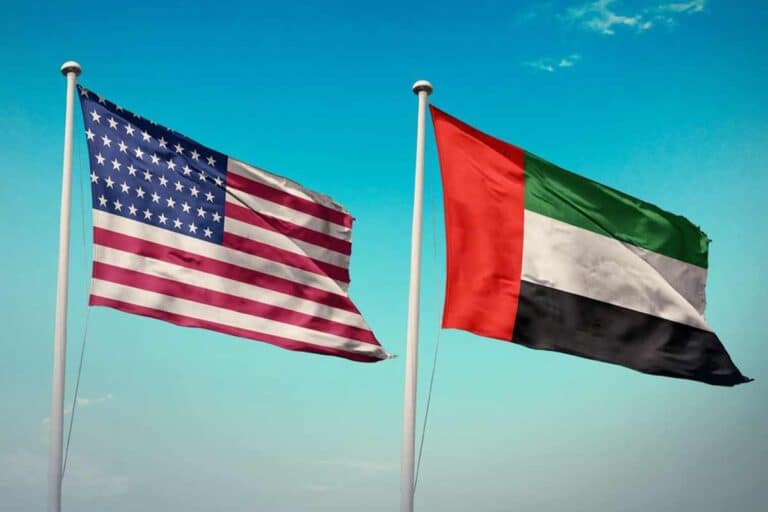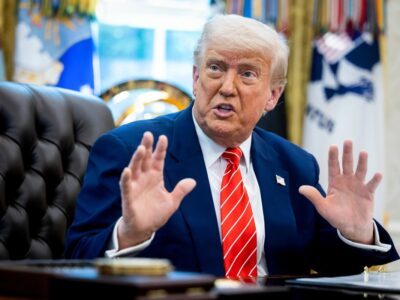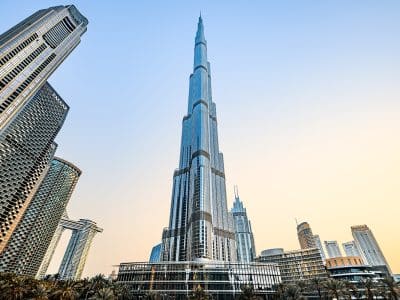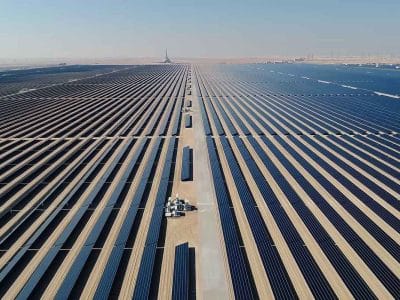The United Arab Emirates has built a $1 trillion economic relationship with the United States that spans from Texas oil fields to Silicon Valley data centres, with officials from both nations now seeking to deepen these ties following high-stakes talks at the White House.
Sheikh Tahnoun bin Zayed Al Nahyan, Deputy Ruler of Abu Dhabi and UAE National Security Adviser, concluded meetings with US President Donald Trump and senior administration officials on Tuesday that underscored the growing strategic importance of the partnership.
“The UAE remains committed to strengthening its economic ties with the US by accelerating investments in artificial intelligence, advanced technology, infrastructure, energy and healthcare,” Sheikh Tahnoun wrote on X after the meetings, characterising these sectors as “key pillars for sustainable growth and development.”
This expanding relationship, which began to accelerate around 2009 when the UAE became America’s top export market in the Middle East and North Africa region, now supports approximately 161,000 American jobs, according to the UAE Embassy in Washington.
Trade boom benefits both nations
The economic partnership has seen remarkable growth in recent years. Bilateral trade reached $34.4 billion in 2024, with US exports to the Emirates accounting for nearly $27 billion, cementing the UAE’s position as America’s third-largest trade surplus globally.
US exports to the Emirates have increased at an annualised rate of 4.38 per cent over five years, rising from $19.8 billion in 2018 to $24.6 billion in 2023. Key exports include gas turbines ($3.48 billion), automobiles ($3.08 billion), and aircraft parts ($1.6 billion).
Meanwhile, UAE exports to the United States – primarily raw aluminum ($1.58 billion), refined petroleum ($764 million), and crude petroleum ($568 million) – have grown at an annualised rate of 4.58 per cent during the same period, reaching $6.19 billion in 2023.
AI and tech investments accelerate
While traditional sectors like energy and aerospace remain crucial to the relationship, both countries are increasingly focused on technology collaboration, particularly in artificial intelligence.

The highest-profile example came in April last year, when Microsoft invested $1.5 billion in Abu Dhabi’s G42, expanding their partnership to deliver advanced AI and cloud solutions globally. The deal includes the creation of Microsoft’s Global Engineering Development Center in the UAE, one of the company’s first engineering centers in the Arab world.
This partnership was complemented by Abu Dhabi’s G42 collaboration with California-based Cerebras Systems to launch the Condor Galaxy supercomputer, which they tout as the world’s largest and fastest AI system.
IBM and the Mohamed bin Zayed University of Artificial Intelligence have also established an AI Center of Excellence focused on developing carbon-neutral energy solutions and advancing natural language processing for Arabic dialects.
Data centres drive future growth
The Trump administration has secured major UAE investments since the presidential election, with DAMAC Properties pledging up to $20 billion to build data centres across the American Midwest and Sun Belt.
In a separate but related development, UAE-based MGX joined BlackRock, Microsoft, and Global Infrastructure Partners as an initial equity funder in Texas’s Stargate project, a new AI joint venture. This consortium committed an initial $100 billion, with plans to increase funding to $500 billion over four years to develop AI infrastructure.
US private equity firm KKR and Dubai’s Gulf Data Hub have similarly announced a $5+ billion investment to boost data centre infrastructure in the Gulf region, further cementing technological ties between the nations.
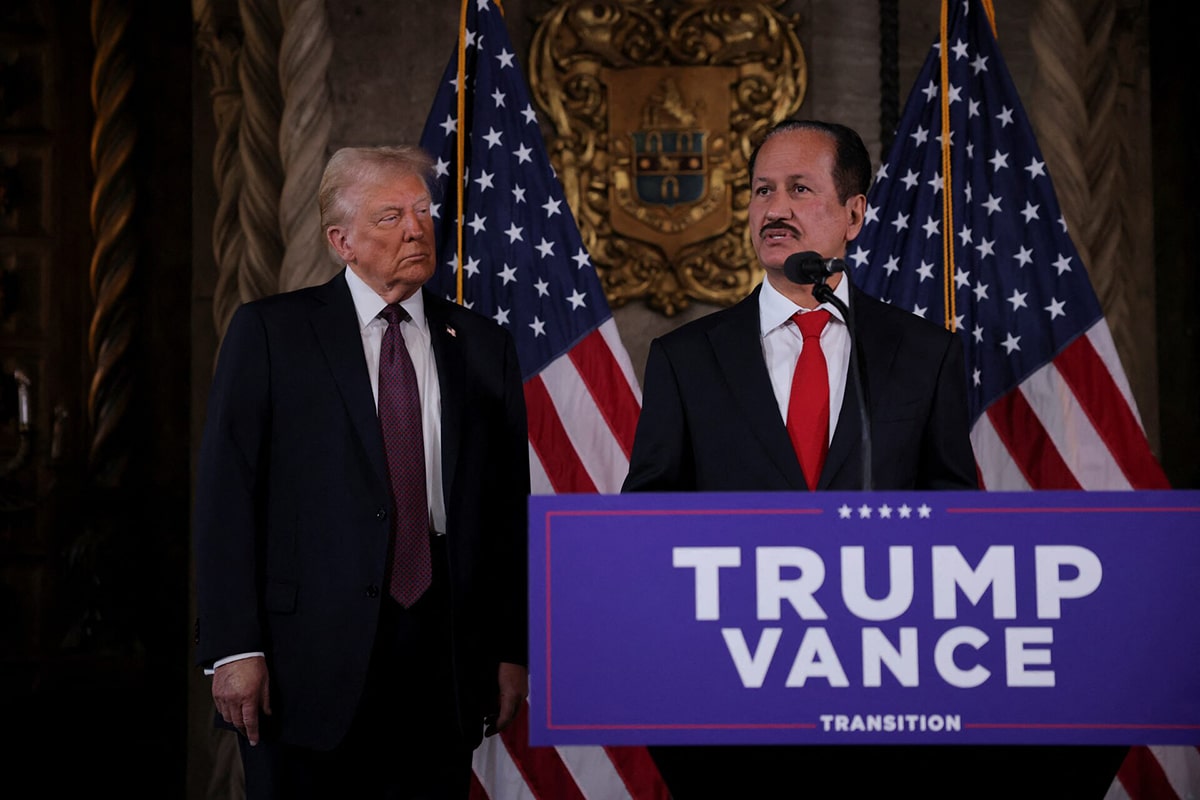
Clean energy, aviation partnerships expand
The UAE-US Partnership for Accelerating Clean Energy (PACE), launched in 2022, has created a framework to support clean energy investments and financing.
Dr. Sultan Al Jaber, UAE Minister of Industry and Advanced Technology, who accompanied Sheikh Tahnoun during the Washington visit on Tuesday, highlighted opportunities for further investment across what he termed the “energy-AI nexus” during a recent keynote at Houston’s CERAWeek conference.
The UAE’s renewable energy company Masdar has made significant investments in clean energy projects across Texas, New Mexico, and California, while ADNOC, the UAE’s state oil company, maintains stakes in an ExxonMobil hydrogen plant in Baytown, Texas, and the NextDecade Rio Grande LNG export center.
In addition, major aircraft orders from Boeing by UAE airlines have strengthened aerospace ties, while partnerships with NASA and other US-based space companies have advanced the UAE’s space exploration ambitions.
Healthcare innovation represents another growth area, with Cleveland Clinic Abu Dhabi collaborating with US counterparts to conduct the UAE’s first robot-assisted kidney transplants.
Vice President JD Vance met with the UAE delegation to discuss “deepening UAE-US collaboration on supporting energy investment and abundance, technological leadership, and unleashing unprecedented economic growth,” according to the UAE embassy’s social media statement.
“The approach of the leadership of both countries and their economic policies represents a significant impetus for encouraging foreign direct investment and strengthening the existing economic partnership between the two nations,” Sheikh Tahnoun noted after the White House meetings.

